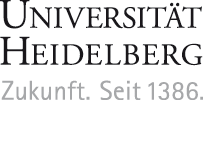Initiative for Excellence: University of Heidelberg Submits Seven Proposals
16 April 2007
“Together, these proposals represent the University’s supreme asset in this competition: interdisciplinary academic diversity of a breadth and quality that only a classical comprehensive university can draw upon.” (Rector Prof. Dr. Peter Hommelhoff and vice-Rector Prof. Dr. Jochen Tröger in a letter to all the members of the University)
Last Friday, scientists and scholars from all sectors of the University of Heidelberg submitted seven proposals for adjudication in the Initiative for Excellence contest organised by the Federal and state governments. “Together, these proposals represent the University’s supreme asset in this competition: interdisciplinary academic diversity of a breadth and quality that only a classical comprehensive university can draw upon.” Thus Rector Prof. Dr. Peter Hommelhoff and vice-Rector Prof. Dr. Jochen Tröger in a letter addressed to all the members of the University.
“Our Institutional Strategy entitled ‘Heidelberg: Realising the Potential of a Comprehensive University’ and proposed for the third line of funding is the proof that we do not intend to rest on our laurels,” the letter continues. This Institutional Strategy is not only designed to strengthen those areas of the University that in the past have done most to sharpen the Heidelberg profile, from the life sciences plus medicine, physics, astronomy and chemistry to the humanities and mathematics. Its more far-reaching goal, according to the Rector and vice-Rector, is to enhance the interdisciplinary links between different research areas and the various research cultures that have evolved there in the course of time.
In the letter the implementation of the Institutional Strategy is described as “the University of Heidelberg’s biggest potential contribution to future research discoveries and to the role played by interdisciplinary scientific and scholarly endeavour in the solution of global issues affecting mankind.” A priority of the Strategy is to provide support for young academics and to ensure that they can attain self-sufficiency at an early stage. “The way our Strategy intends to overcome the institutional boundaries traditionally existing between scientific and scholarly institutions is exemplified in concrete terms by the strategic alliance between the Molecular Biology Centre of the University of Heidelberg (ZMBH) and the German Cancer Research Centre (DKFZ).”
It is the scientists and scholars themselves “with their disciplinary diversity and the superb quality of their work who have laid the foundations for the interdisciplinary profile of the University,” Hommelhoff and Tröger continue, emphasising the fact that colleagues from all over the University have cooperated to enable the University to submit three proposals for Graduate Schools and a further three proposals for Clusters of Excellence. Scientists and scholars from all sections of the University — ranging from molecular and cell biology, cancer research, public health and scientific computing to astrophysics and cultural studies research on Asia and Europe - have been involved in the planning work and the proposals for the Initiative.
The Institutional Strategy to promote top-level university research is a product of concerted endeavours from the whole University. “Accordingly, it is also supported by the whole University.” Together with the University Council, the Senate, the Advisory Academic Council and not least the University’s committed academic and industrial partners, the Rectorate and the “AG Zukunft” work group have checked the quality of the proposal and contributed advice, additions and backing with a view to maximising the University’s chances in the competition. According to Hommelhoff and Tröger, the University owes a debt of profound gratitude above all to the “AG Zukunft” team and the commitment of a number of emeritus professors supporting them in their work.
The letter to the members of the University concludes as follows: “Like yourselves, we are all looking forward to the results of the competition, of which the University will be officially informed on 19 October 2007. By then the proposals for Graduate Schools, Clusters of Excellence and the Institutional Strategy for top-level university research will have been scrutinised by an international team of referees appointed by the German Research Foundation (DFG) and the Science Council (WR).”
Proposals by the University of Heidelberg for the second round of the Initiative for Excellence of the Federal and state governments
First line of funding (Graduate Schools)
- Heidelberg Graduate School of International Public Health (GRIPH); (coordinator Rainer Sauerborn)
- The Hartmut Hoffmann-Berling International Graduate School of Molecular and Cellular Biology (coordinators Elmar Schiebel and Michael Lanzer)
- Heidelberg Graduate School of Mathematical and Computational Methods for the Sciences (coordinator Hans Georg Bock)
- Translational Oncology (coordinator Jürgen Debus)
- Asia and Europe in a Global Context: Shifting Asymmetries in Cultural Flows (coordinators Madeleine Herren, Axel Michaels and Rudolf G. Wagner)
- Heidelberg CASTLE: Cluster of ASTrophysicaL Excellence (coordinator Joachim Wambsganß)
- Heidelberg: Realising the Potential of a Comprehensive University
- Heidelberg Graduate School on Fundamental Physics (coordinator Mathias Bartelmann)
- Cluster of Excellence Cellular Networks: From Molecular Mechanisms to Quantitative Understanding of Complex Functions (coordinator Hans-Georg Kräusslich)
Dr. Michael Schwarz
Public Information Officer
University of Heidelberg
phone: 06221/542310, fax: 542317
michael.schwarz@rektorat.uni-heidelberg.de
http://www.uni-heidelberg.de/presse
Irene Thewalt
phone: 06221/542310, fax: 542317
presse@rektorat.uni-heidelberg.de
Editor:
Email


